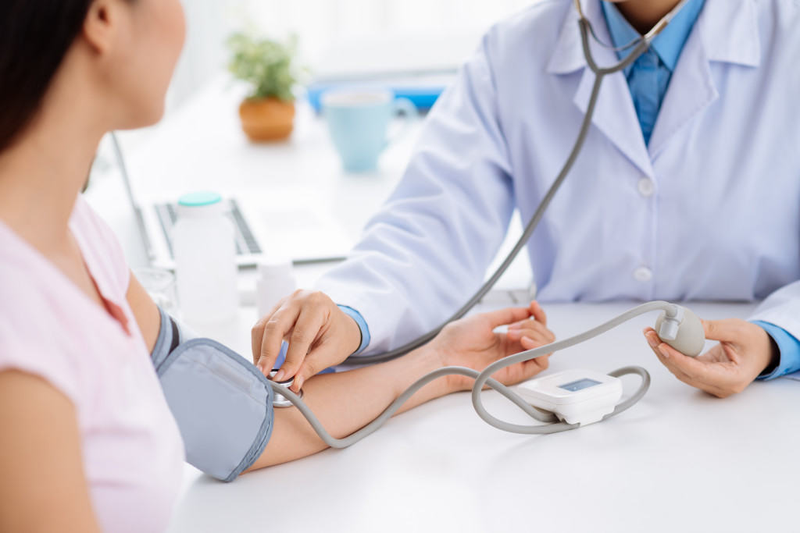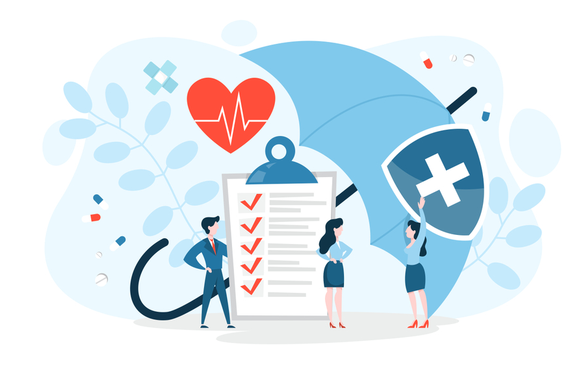What are the rights and obligations of patients when participating in medical examination and treatment in Vietnam? - Ngoc Trinh (Dak Lak, Vietnam)
Rights and obligations of patients when participating in medical examination and treatment in Vietnam (Internet image)
1. Rights and obligations of patients when participating in medical examination and treatment in Vietnam
Rights and obligations of patients when participating in medical examination and treatment are specified in Section 1 of the Law on Medical Examination and Treatment 2009, specifically:
1.1 Rights of the patient in Vietnam
- Rights to medical examination and treatment with quality suitable to actual conditions
+ To be given counseling and explanations about their health status, treatment methods and medical examination and treatment services suitable to their diseases.
+ To receive treatment with safe, appropriate and effective methods according to professional and technical regulations.
- Rights to respect for privacy
+ To have their health status and private information given in their case history dossiers kept confidential.
+ The information referred to in Clause 1 of Article 8 of the Law on Medical Examination and Treatment 2009 may be disclosed only when so agreed by patients or for exchange of information and experience between practitioners directly treating the patients to improve the quality of diagnosis, care and treatment of patients or in other cases provided by law.
- Rights to respect for honor and protection of health in medical examination and treatment
+ To be subject to no discrimination in medical examination and treatment or forced medical examination and treatment, except the cases specified in Clause 1, Article 66 of this Law.
+ To be respected in terms of age, gender, ethnics and belief.
+ To be subject to no discrimination based on their financial and social status.
- Rights to choice in medical examination and treatment
+ To fully receive information, explanations and counseling about their disease status, results and possible risks to choose diagnosis and treatment methods.
+ To accept or refuse to participate in biomedical research in medical examination and treatment.
+ To nominate representatives to perform and protect their rights and obligations in medical examination and treatment.
- Rights to obtainment of information on case history dossiers and medical examination and treatment expenses
+ To receive brief information on their case history dossiers when so requested in writing, unless otherwise provided by law.
+ To be provided with information on charges for medical examination and treatment services and detailed explanations about expenses indicated in invoices for medical examination and treatment services.
- Rights to refusal of medical treatment and discharge from medical examination and treatment establishments
+ To refuse testing, use of drugs and application of treatment techniques or methods, but to make written commitment on personal responsibility for such refusal, except the cases specified in Clause 1. Article 66 of this Law.
+ To leave medical examination and treatment establishments when treatment is not completed, but to make written commitment to take personal responsibility for such leaving, which is contrary to practitioners’ instruction, except the cases specified in Clause 1. Article 66 of this Law.
- Rights of patients losing civil act capacity, or without civil act capacity or with restricted civil act capacity, or being juveniles aged between full 6 years and under full 18 years
+ Lawful representatives of patients losing civil act capacity, or without civil act capacity or with restricted civil act capacity, or being juveniles aged between full 6 years and under full 18 years may decide on medical examination and treatment for the patients.
+ In cases of emergency, to protect the life and health of a patient, the head of a medical examination and treatment establishment may decide on medical examination and treatment for the patient when his/her lawful representative is absent.
1.2 Obligations of the patient in Vietnam
- To respect practitioners
To respect and commit no act of harming the honor, dignity, health and life of practitioners and other health workers.
- To observe regulations on medical examination and treatment
+ To truthfully provide information related to their health status and fully cooperate with practitioners and medical examination and treatment establishments.
+ To follow practitioners' instructions on diagnosis and treatment, except the cases speicified in Article 12 of this Law.
+ To observe and request their relatives to observe rules of medical examination and treatment establishments and the law on medical examination and treatment.
- To pay medical examination and treatment expenses
To pay medical examination and treatment expenses, except cases of exemption or reduction under law. For insured patients, payment of medical examination and treatment expenses complies with the law on health insurance.
2. 14 Prohibited acts regarding medical examination and treatment in Vietnam
According to Article 6 of the Law on Medical Examination and Treatment 2009, prohibited acts regarding medical examination and treatment include:
- Refusing to provide or intentionally delaying first aid for patients.
- Providing medical examination and treatment without a medical practice certificate or during the time subject to suspension from professional practice; providing medical examination and treatment services without an operation license or during the time subject to suspension from operation.
- Practicing medical examination and treatment or providing medical examination and treatment services outside the scope of professional operation under a medical practice certificate or operation license, except cases of emergency.
- Hiring, borrowing, leasing or lending medical practice certificates or operation licenses.
- Practitioners selling drugs to patients in any forms, except herb doctors, herb assistant doctors, herbalists and owners of family remedies.
- Applying medical professional methods and techniques which have not been recognized and using drugs which have not been licensed for circulation, in medical examination and treatment.
- Advertising professional capacity and qualifications untruthfully or beyond the scope of professional operation under medical practice certificates or operation licenses; abusing traditional herbal medicament knowledge or other medical knowledge to advertise treatment methods or drugs untruthfully.
- Using superstitions in medical examination and treatment.
- Practitioners drinking alcohol or beer or smoking or having an alcoholic concentration in blood or breath when providing medical examination and treatment.
- Infringing upon patients' rights; failing to observe professional and technical regulations in medical examination and treatment; taking advantage of positions and powers in medical examination and treatment: abusing the profession to harm the honor, dignity and body of patients: erasing and modifying case history dossiers to falsify information on medical examination and treatment.
- Harming the health, life, honor and dignity of practitioners.
- Obstructing patients in need of compulsory treatment in admitting to medical examination and treatment establishments or intentionally providing treatment for those not in need of compulsory treatment.
- Medical cadres, civil servants and public employees establishing, engaged in the establishment or management and administration of, private hospitals or medical examination and treatment establishments set up and operating under the Enterprise Law or the Law on Cooperatives, unless they are assigned by competent state agencies to manage and administer state-funded medical examination and treatment establishments.
- Bribe giving, taking and broking in medical examination and treatment.
Nhu Mai
 Article table of contents
Article table of contents









.Medium.png)
.Medium.png)
.Medium.png)
.Medium.png)
